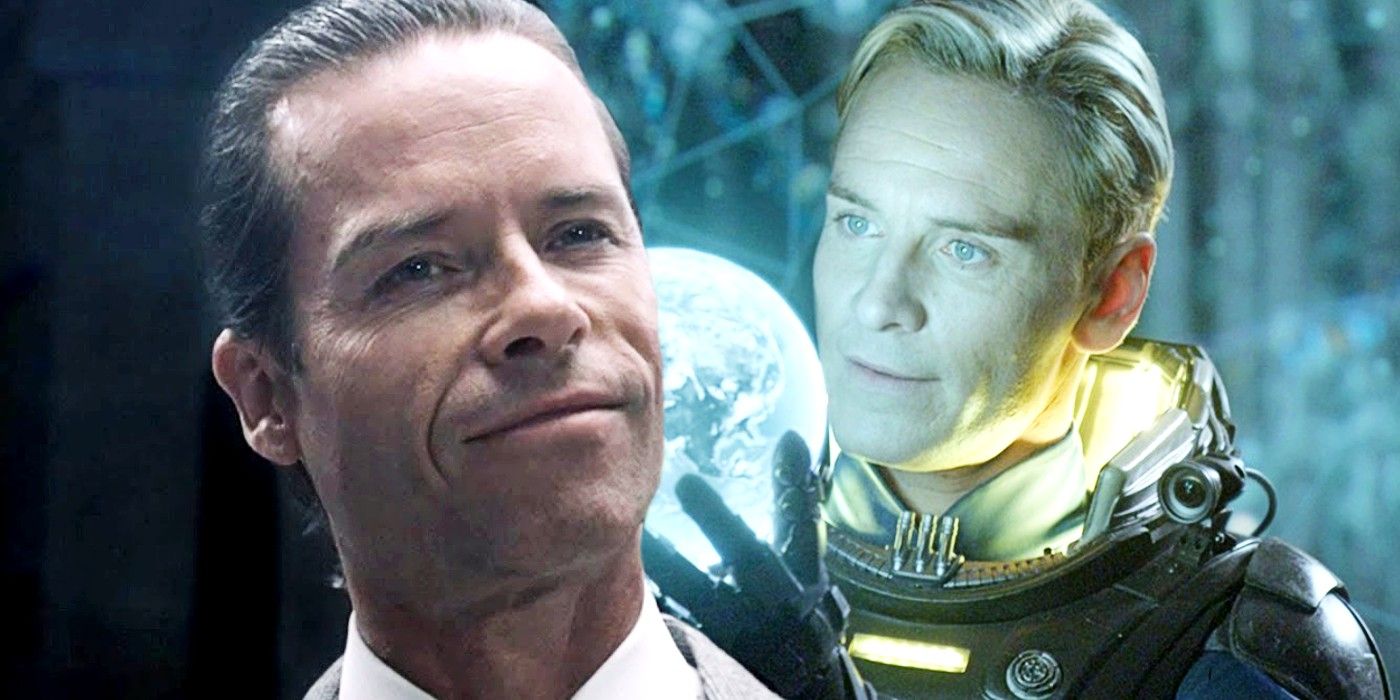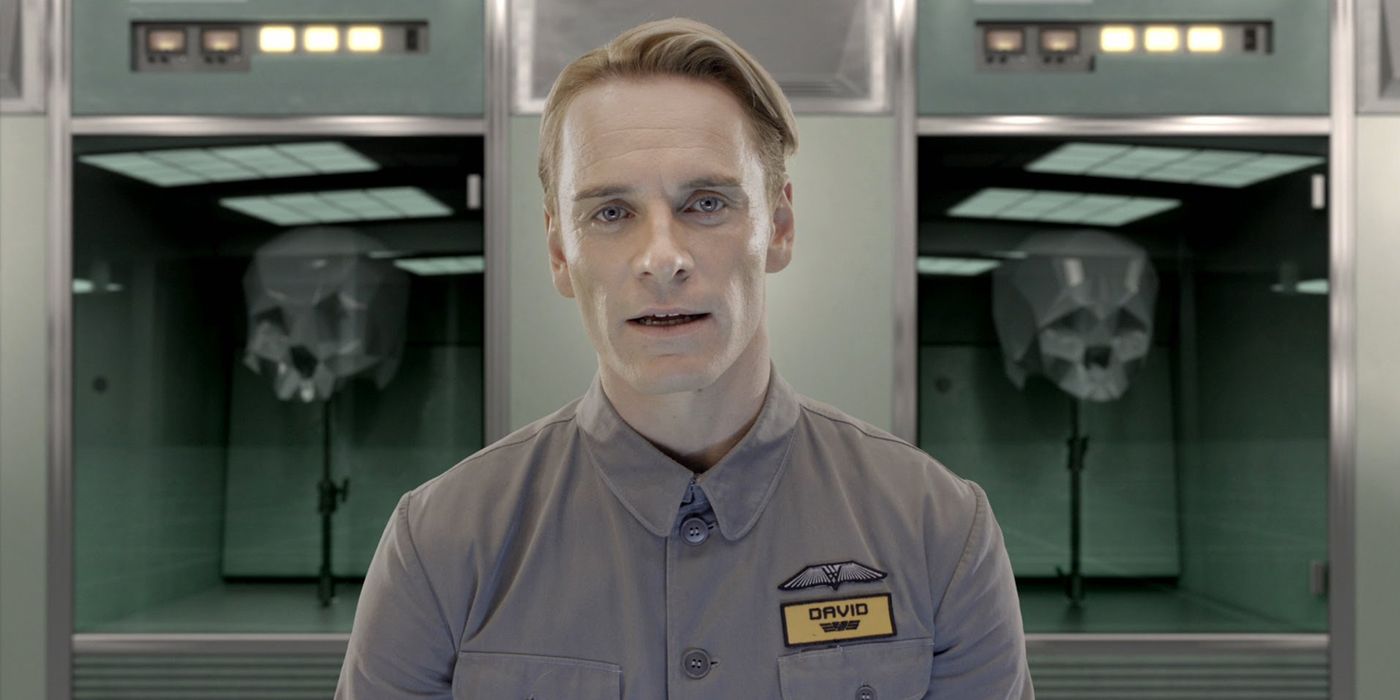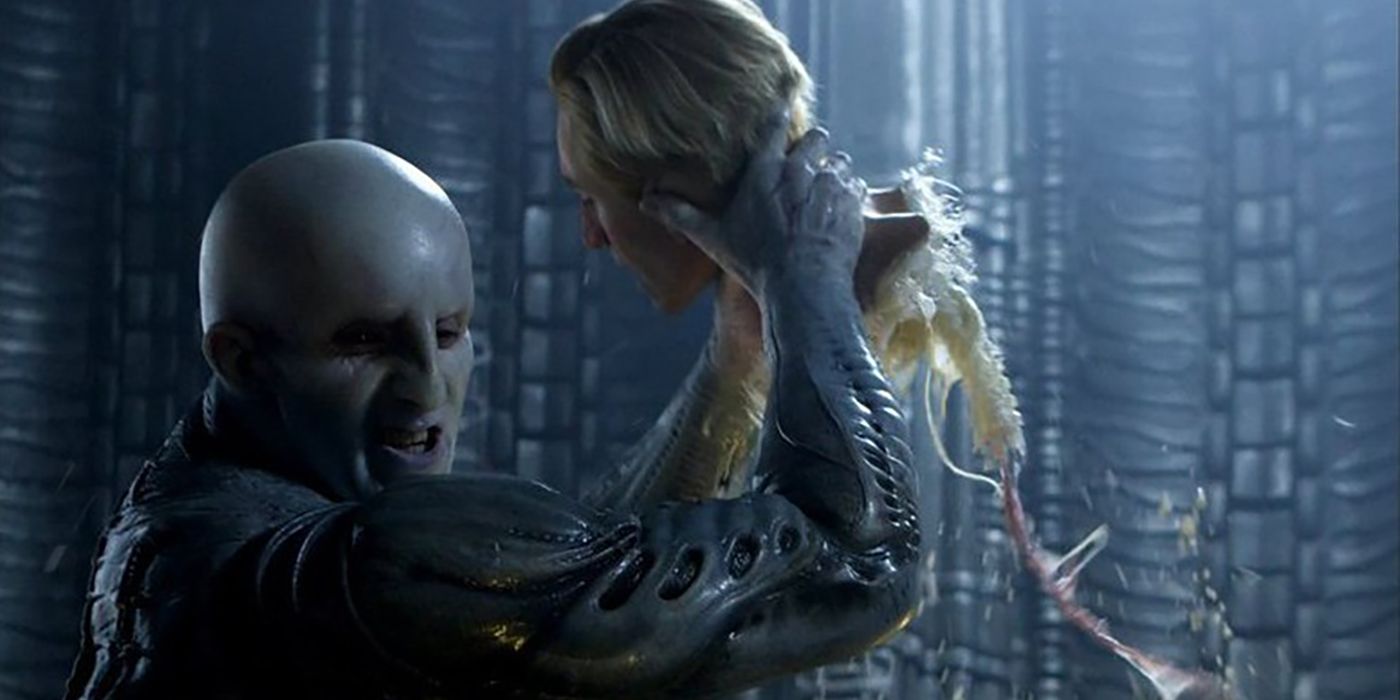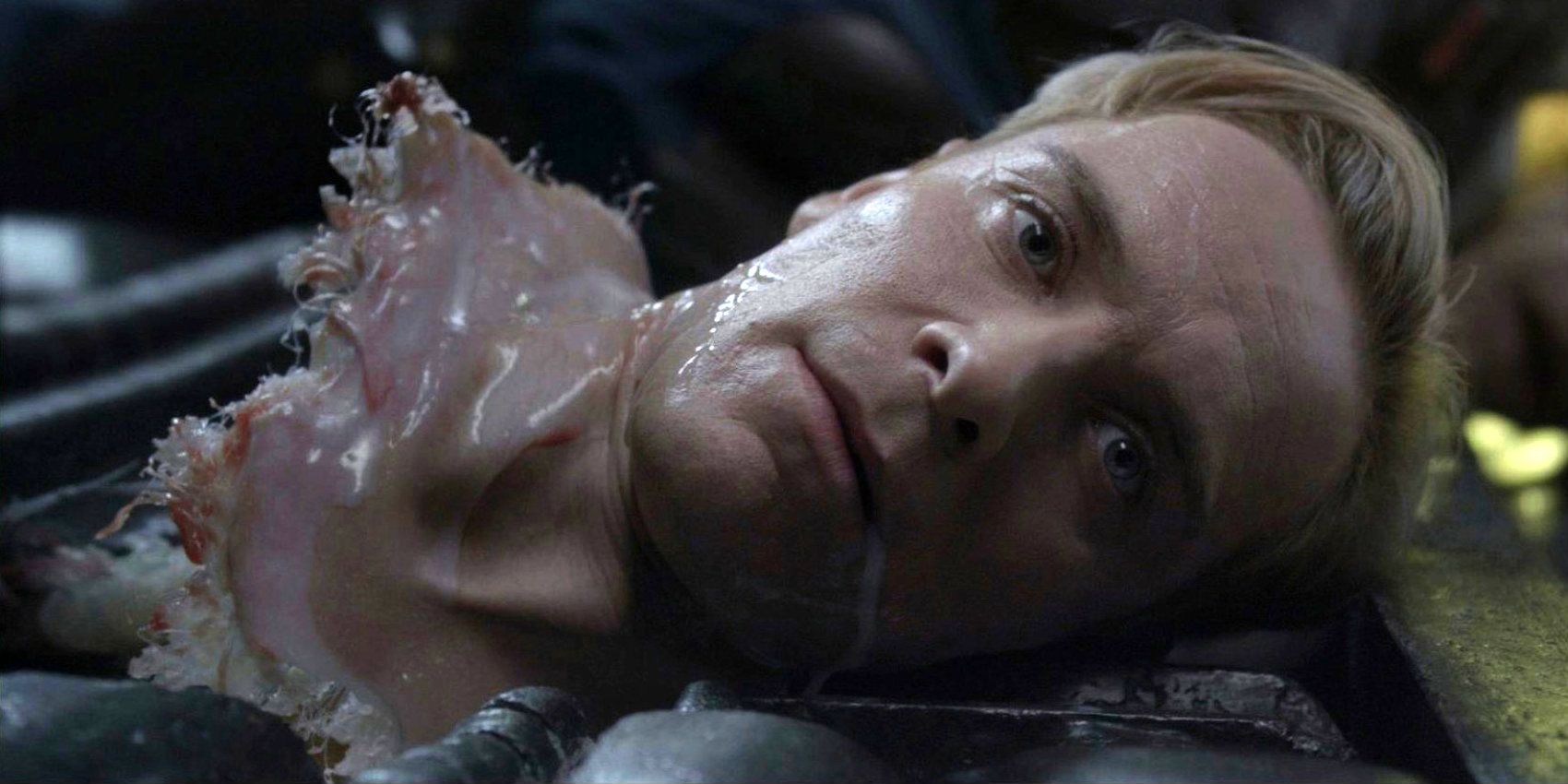
Michael Fassbender’s android David might have been the best thing in Prometheus, but originally, the character had a clearer canon connection to the Alien franchise's overarching villains, the Weyland-Yutani Corporation. The Alien franchise has used android characters as stand-ins for corporate stooges since the series began, but the movies have never been overly clear about how these technological marvels work. When Ian Holm’s character is revealed to be an android working for Weyland-Yutani in 1979’s original Alien, Ash’s betrayal of the team is seen as sneaky and suspicious.
However, in Aliens, the very much human Carter Burke plays a similar role, sending employees to certain death for the sake of a profit margin. As such, Alien makes it clear that in the universe of the franchise, androids are employed to fulfill the sort of roles humans would balk away from on moral grounds, while its sequel Aliens shows that sometimes, humans still fill these sort of ethically ambiguous jobs. This becomes more confusing with Prometheus and Alien: Covenant, Alien director Ridley Scott’s more recent additions to the mythos.
In both Prometheus and Alien: Covenant, Michael Fassbender plays David, an android who is seemingly designed to help human space crews. However, while the superior Alien prequel Alien: Covenant features an unambiguously good android and an unambiguously evil one, Prometheus is less clear about how its antihero David became so lethally unhinged. David the android is easily the most compelling character in Prometheus, but his motivations are never made clear and viewers could reasonably leave the Alien prequel uncertain why he felt compelled to become a genocidal villain by the sequel. However, the original script for Prometheus gave David a closer connection to Weyland-Yutani’s founders, and thus grounded his villainy in the same hubris that drives much of the Alien franchise’s action.

By the time viewers saw the android again, David wanted to destroy every world he encountered in Alien: Covenant (though his plot-hole riddled-plan to do so was not exactly clear). However, the question of how the android became so megalomaniacal during his years spent offscreen with the doomed Prometheus heroine Elizabeth Shaw is never really explained in any detail. His murder of Shaw and subsequent isolation likely played a part in developing his homicidal tendencies, but David was already happy to pull off a mass extinction event before either of those occurred, so the root of his evil is still unclear for viewers.
As seen in a flashback during Alien: Covenant’s action, David arrived on the home planet of the Engineers and immediately killed every living being in sight by unleashing a plague of Xenomorphs on the assembled population. This is certainly a chilling image, but the issue of why David killed the Engineers (and conducted some horrific experiments on Prometheus' Shaw after her death) is never satisfyingly justified. The David of Prometheus was cold and uncaring, but not randomly violent, let alone genocidal. However, not only can his missing motivation can be unearthed in the original script of Prometheus, but it is an explanation that effectively ties into the broader mythos of the Alien franchise.

David was, according to Prometheus’ earlier drafts, based on company founder Peter Weyland himself and would likely have been played by the same actor. In the finished Prometheus, Michael Fassbender plays David while Guy Pearce took on the role of Weyland, but the original plan would have made the fact that David acted as an extension of the ruthlessly ambitious industrialist much more obvious. This could have made it abundantly clear that the robot’s hubris came from his human inspiration, bringing back the Alien franchise's satire of class warfare originally seen in the first and second movies. Knowing that David was essentially Weyland’s attempt to transfer his consciousness into an android would have avoided the villain and his self-titled corporation being let off the hook for the robot’s dastardly deeds, as they are in Alien: Covenant. Where Alien: Covenant ended up centering on one evil robot and his inexplicable plan, if David’s Prometheus origin were kept, his attempt to take over the galaxy would have been part of his creator’s drive to crush the competition on earth and everywhere else.

Originally, Prometheus’ script made it clear that David was acting in the interest of his creator and shared his ambitions to take over as much of the universe as possible for profit. Much like Army of the Dead ruined Aliens’ anti-corporate satire by changing the movie’s most famous quote, Prometheus defanged this critique of wealthy industrialists like Weyland by distancing the character from David. It is believable that the robot would be programmed with his creator’s mindset, and makes much more sense than his rootless pseudo-philosophical stance in the sequel. David’s God complex is ably portrayed by Fassbender, but Alien: Covenant does not do much to explain where the robot’s drive to kill every life form he comes across originated. The Alien franchise depicts the android as dangerously untrustworthy and eventually, David manages to kill the entire human cast by Alien: Covenant's bleak ending, but his actions are not tied to any real-life issue unlike earlier villains of the series.
In contrast, Prometheus originally depicted a situation wherein the Alien franchise’s androids and corporate villains worked together by risking the lives of ordinary employees to access Xenomorphs as bioweapons, an idea explored in Scott’s original movie. Prometheus’ original script sees David develop his God complex as an extension of Weyland’s desire to never die, and both the rich corporate overload and his robot are tied together by the same lethal ambition to take over the galaxy for profit. Removing the connective tissue that explains this motive makes David a less comprehensible villain and robs the robot of his driving motive, which is to keep the legacy of his creator alive. As a result, many critics argued that Alien: Covenant wasted Fassbender’s compelling central turn on a character without a clear motivation, something David would have been provided if Prometheus stuck to its explanation of the character’s origins.
from ScreenRant - Feed https://ift.tt/3Cg1sEx

0 Comments